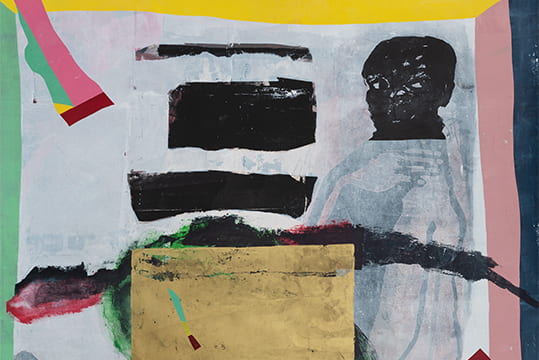
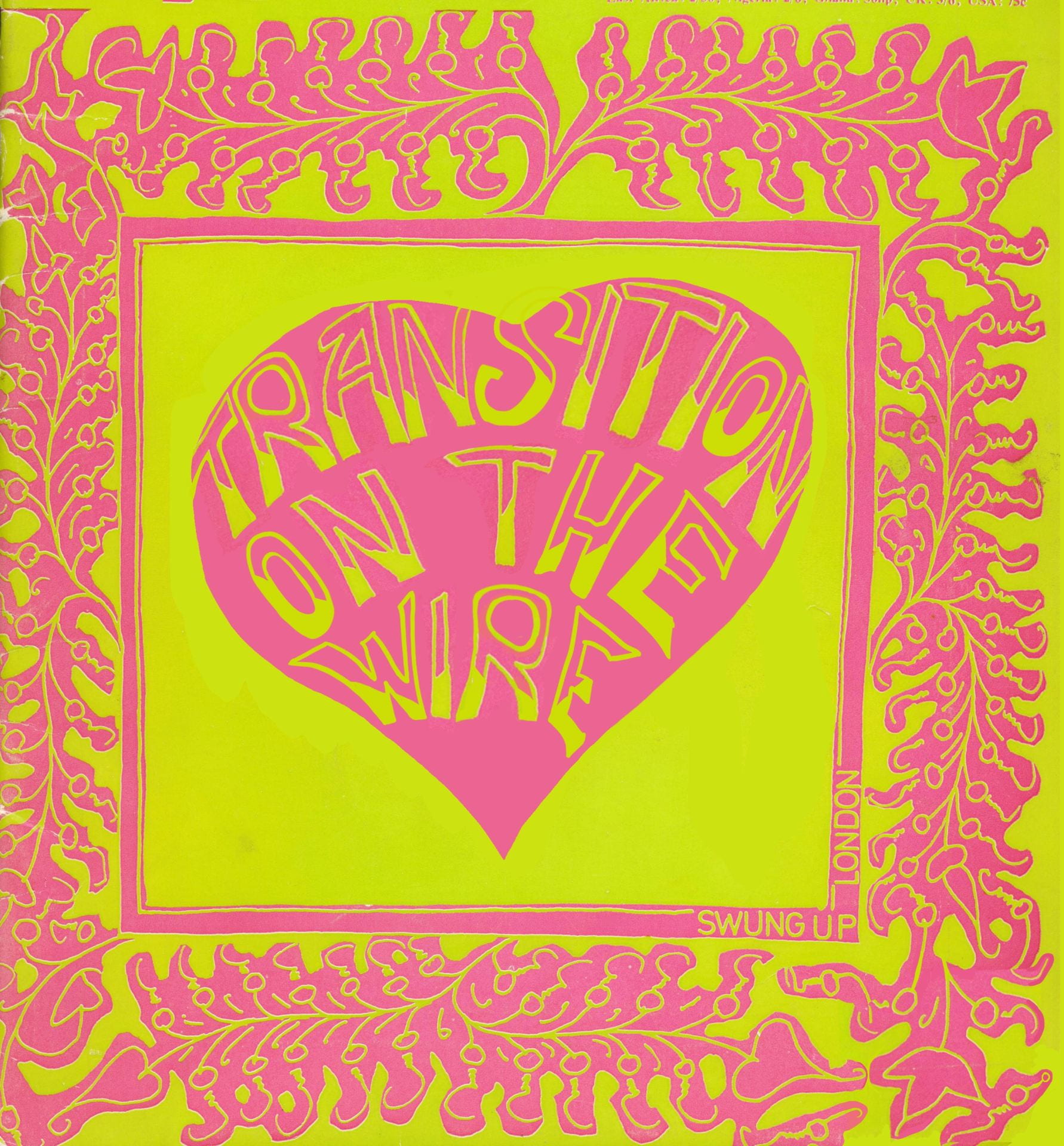
Podcast
Transition on the Wire
In our inaugural podcast, Sarah Ladipo Manyika interviews best-selling, Booker-Prize- winning author Bernardine Evaristo. Listen on Spotify or Apple Podcasts, or directly from Soundcloud. Join us each month for a new interview with authors and artists of the Diaspora. In our next episodes, Sarah interviews rapper, singer-songwriter will.i.am and actor Delroy Lindo!
From the Archive
Upon Returning to Jamaica in Search of the Undead
When Thomas Glave visited Manchester, Jamaica, with his family, he could not find his great-great-grandmother’s grave. She, Catherine Wright, a Black woman, most likely, did not have one. But his great-great-grandfather’s stone, though cracked and unadorned, lays steadfast on the land to mark the death of the Englishman. Their child spreads his palms on the grave. What easier way to invoke the life of the forgotten by placing your hands on the one who has chosen, by circumstance or conviction, to forget you?
That is only one question the writer Thomas Glave posits for himself, and by extension his ancestry, in his essay, “In Search of the Undead: (Un)marked Graves and The Sea of We,” published in Transition, Issue T128. In his commitment to uncovering the hard truths of racial economy, sexual politics, and their intersection, Glave provides a searching, uncompromising historical account—as Transition authors have done since the magazine’s founding.
—Bizaye Banjaw
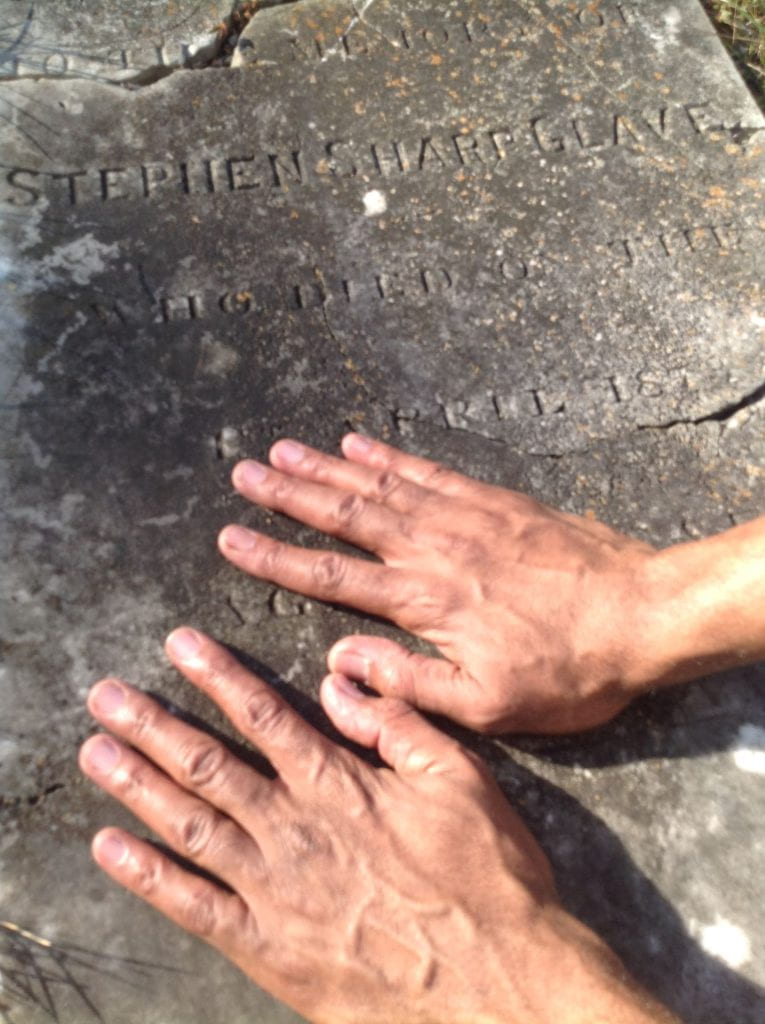
Artist Spotlight
Yvonne Osei
Multidisciplinary Ghanaian artist Yvonne Osei uses photography and the language of textile design to create full-body portraits of African and African American women, including herself, adorned in vibrant, colorful textile patterns. Her series, “Here to Stay,” serves as a focal point for celebrating the elegance, ingenuity, resilience, and contributions of black women. The title, “Here to Stay,” signifies a declaration of presence and an endeavor to establish enduring recognition for young black women. This work operates on both physical and metaphorical levels of insertion.
Created in 2016-17, during a year-long residency at St. Louis, Missouri’s cherished open-air museum, Laumeier Sculpture Park, Osei spent time photographing and gaining insights into the park’s public artworks. Seeking to infuse her perspective and that of individuals who share her background into the park’s landscape and collection, she transformed photographs of artworks, vegetation, signage, and park visitors into textile designs reminiscent of traditional West African textiles and wax print cloths worn in Ghana, her home country…
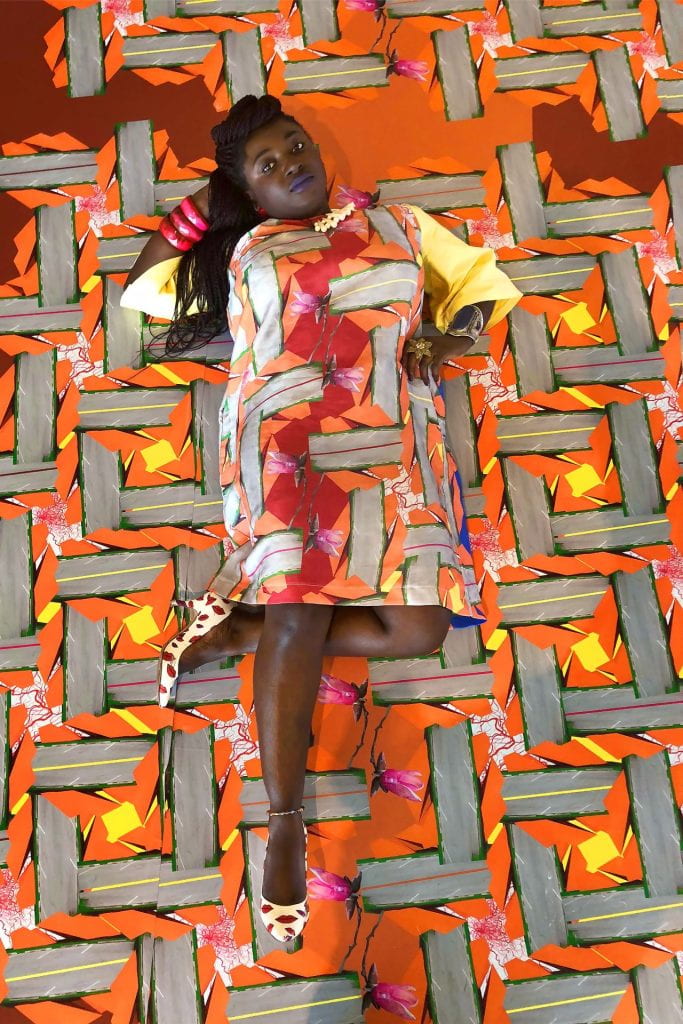
Here to Stay: Yvonne in Pepper Them (Blue), Yvonne Osei, photograph, 2017. Photo courtesy the artist and Bruno David Gallery
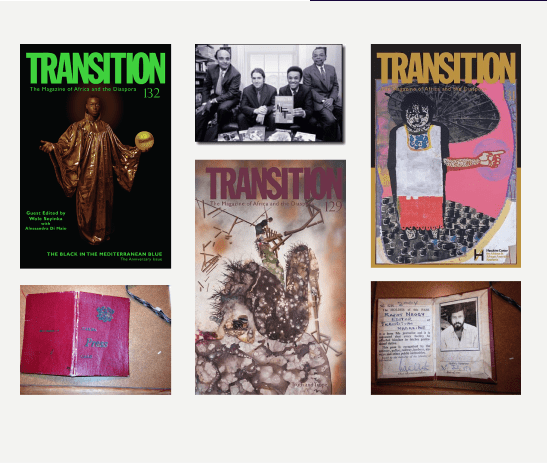
Our History
The Longest-Running Pan-African Cultural Magazine
In immediate postcolonial Africa…the various decolonized or soon-to-be decolonized countries didn’t know too much about one another…

Featured Award
Winelle Felix and Zkara Gaillard Win PEN/Dau Awards for Debut Short Stories
The PEN/Robert J. Dau Short Story Prize for Emerging Writers recognizes twelve emerging writers annually for their debut short story published in a literary magazine, journal, or cultural website, and aims to support the launch of their careers as fiction writers. Winelle has won for her story “Return to Sender: Big Time Tief” and Zkara for her story “A Good Word.” Read both stories in T134!
The winning writers each receive a $2,000 cash prize and will be published by Catapult in their annual anthology, Best Debut Short Stories: The PEN America Dau Prize.
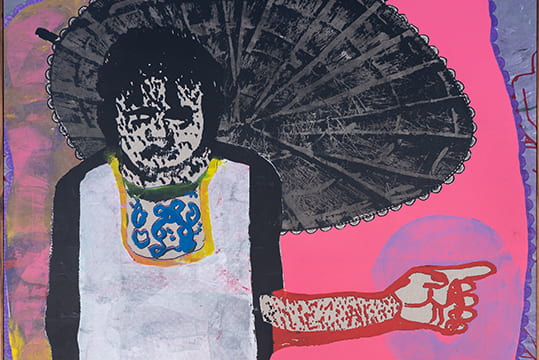
Transition Magazine
Submit
Transition aims to speak to the lay intellectual through jargon-free, readable prose that provides both insight and pleasure.
